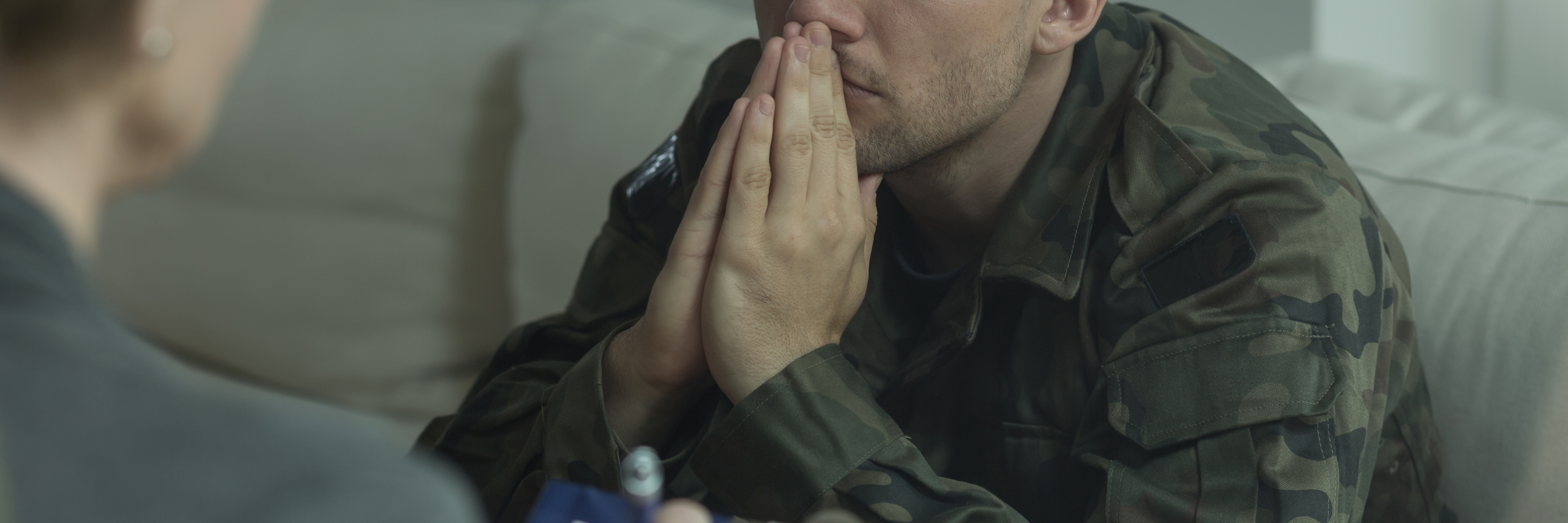How I Learned I Had PTSD After My 14 Consecutive Months in Combat
“Who am I?”
Post-traumatic stress disorder — PTSD. I first heard those four letters shortly after my 14 consecutive months in combat. This was not just your run of the mill 14 months. They were 14 months filled with so many expletives that if I listed them all I would run out of the 18,000 characters I am given.
In all seriousness, it was a time I sometimes wish I could go back too. I often say to friends and family that, “A part of me will forever roam those streets and desert sands of Iraq.” A part of my soul is forever there… almost like purgatory on Earth. I went to Iraq at 20 years old and did not leave until I was 22 years old. I got there as a trained and focused Field Artillery soldier — aka a death dealer. When you really break down what Field Artillery does, we kill people… we don’t hand out puppies. I knew in my case that, once I got into Iraq, something would change in me. Just like that, I crossed over that sand berm at the border of Kuwait into Iraq, and from that moment forward I have never been the same.
My unit and I left Iraq in July 2004, after our year plus deployment. I had survived so many situations I lost count. I lost my best friend three days before Christmas in 2003. We lost our lieutenant and countless others from my unit, and somehow I lived. I went through being told I was going home on R&R for two weeks about four times, but each time watched someone else go in my place because I was “single with no dependents.” I was repeatedly promised to go on the next round and the next round, but the “next round” never happened. I was given one last Hail Mary to leave on R&R — it was my sergeant or me — but he said no, he wanted to see his family. To add insult to injury, I was even tasked to be his gunner on the convoy to BIOP (Baghdad International Airport).
When it was time to end my deployment, I knew there was something wrong with me when I cried leaving Baghdad. I was there for over a year straight and found beauty in hell somehow. I found comfort in combat, even going as far to pray for battle each and every day. I hadn’t seen my family back in New York since I graduated basic training in May of 2002, so one would think I would be eager to get home, but for some reason, those emotions were not there. Realistically, there were no emotions in me anywhere I looked. I was bled of it all in combat.
I was a warmonger; I was the poster boy for the Army. They offered me a re-enlistment to go Special Forces, which was always my dream, but I respectfully declined. I remember my family and friends were so happy to see me — I could see it in their eyes, many filled with tears — but for some reason, there was no emotion inside of me. I had to fake it and lie, as if I was feeling the same. I was in personal denial about how I was really feeling. My friends and family took notice after a few weeks and that is when it began. “Jose, you need to maybe see a doctor because you’re always angry or upset.” I finally caved and went to the VA, where there I was told: “You have signs of something we call PTSD.” There it was, just like that — the first time I heard those four letters together directed at me.
I understood for the most part what I was being told, but I refused to personally accept it. I had just survived almost two years in combat and felt like I was the mentally strongest person in existence. However, as time went on I quietly struggled; I was too ashamed of myself to admit there could be the slightest chance something was wrong with me. I was afraid of what others would think of me and foolishly thought I could hide it from my friends and family. Ultimately, I got to the point where, each and every day, I would ask myself the same question — “Who am I?”
If you need support right now, call the Veterans Crisis Line at 1-800-273-8255 and Press 1. Or send a text message to 838255.
Thinkstock photo via KatarzynaBialasiewicz

